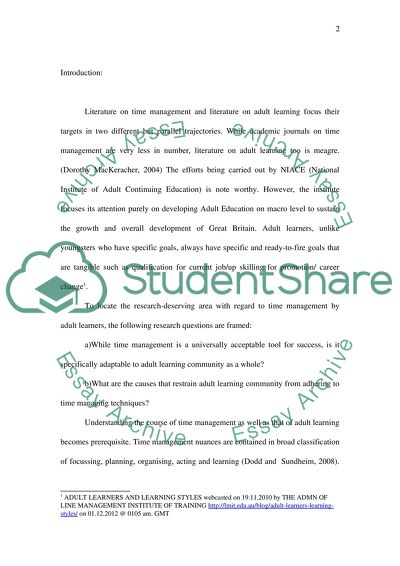Cite this document
(“Managing time as an adult learner Research Paper”, n.d.)
Retrieved from https://studentshare.org/education/1463559-managing-time-as-an-adult-learner
Retrieved from https://studentshare.org/education/1463559-managing-time-as-an-adult-learner
(Managing Time As an Adult Learner Research Paper)
https://studentshare.org/education/1463559-managing-time-as-an-adult-learner.
https://studentshare.org/education/1463559-managing-time-as-an-adult-learner.
“Managing Time As an Adult Learner Research Paper”, n.d. https://studentshare.org/education/1463559-managing-time-as-an-adult-learner.


